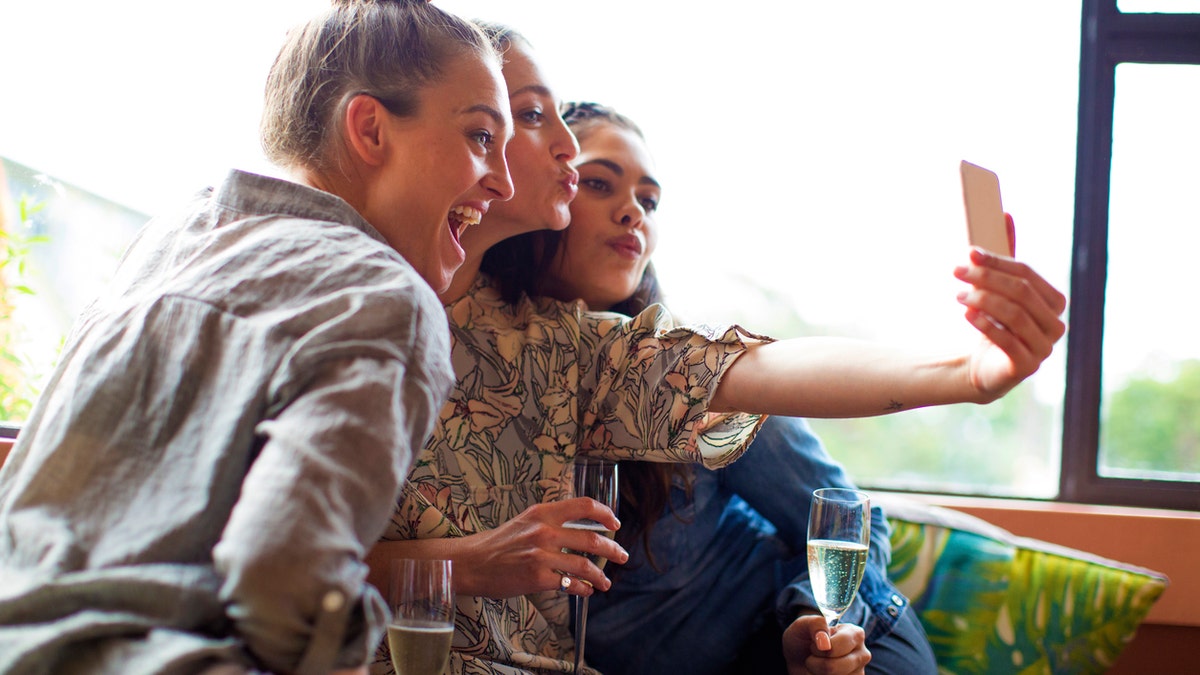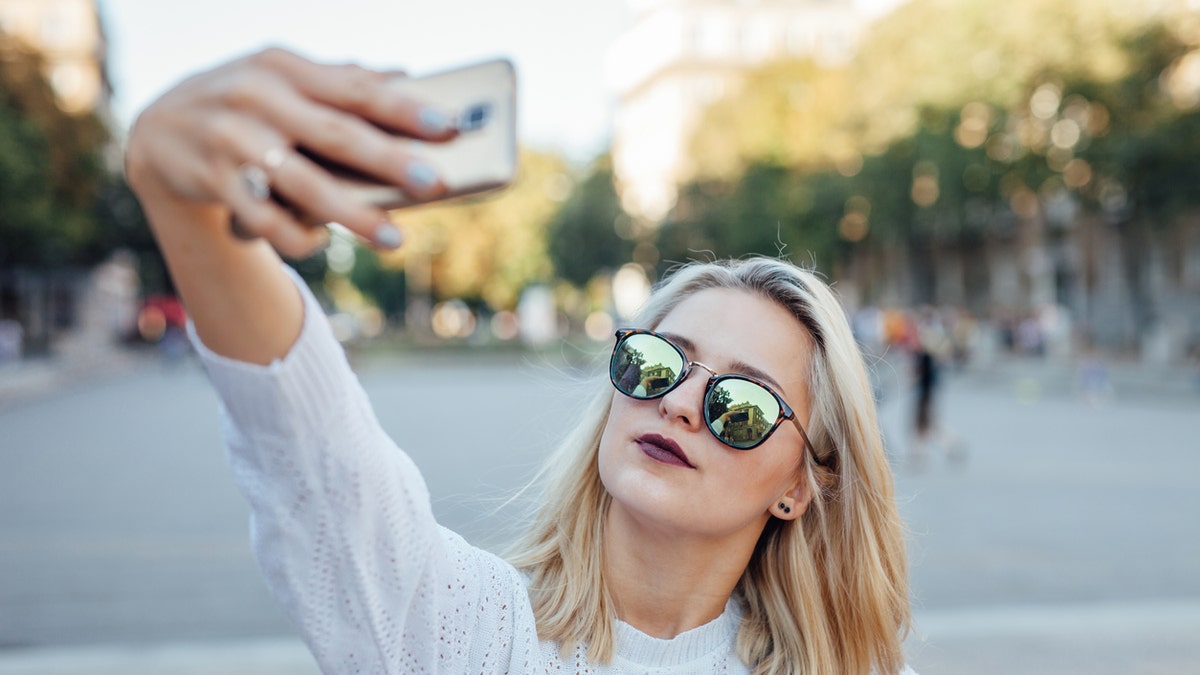
Mixed race girlfriends with Aboriginal woman taking selfie at bar (WanderWomen)
In Greek mythology, Narcissus saw his own reflection in a pool of water and fell in love with it. He was unable to stop staring at his own image and never left the pool until he died. If only poor Narcissus lived in modern times – he could have traveled anywhere with his mobile phone and taken selfies all day and posted them on Facebook.
And our modern-day Narcissus would no doubt be spending Thursday celebrating his favorite holiday – National Selfie Day, a holiday none of us grew up with because it’s only been celebrated since 2014, on every June 21.
The term “selfie” was reportedly coined by a drunk Australian on Flickr in 2004, a year after people starting taking pictures of themselves with their cell phone cameras and posting them on MySpace.
Not that long ago, people – usually teens and younger – showed they had been somewhere by marking a tree with their initials or scribbling graffiti. The stalls of public restrooms were a favorite target. But now that’s so old-fashioned – you can just take a selfie (though hopefully not in a restroom stall) and share it with the world through the miracle of the Internet.
Whether we really need a day devoted to taking our own picture is debatable. But it’s true the selfie is often maligned and could use a little help with its, ahem, image.

FILE (iStock)
People hate selfies. People who enjoy selfies are considered self-absorbed, shallow, conceited. You might even call them narcissists – a word derived the name of the dear departed mythological Narcissus.
Self-described “selfie addict Alice Audley” wrote in The Telegraph about how she kicked the selfie habit – connecting the habit with screen addiction. But in reality, screen addiction has nothing to do with taking your own picture when you’re feeling particularly good about yourself or when you want to remember a picturesque locale by posing in front of it.
The act of capturing your own likeness isn’t new, of course. Many artists drew or painted self-portraits. Some famous artists like Frida Kahlo and Vincent Van Gogh are known for them. So why such derision for selfies?
Audley notes that Britain’s Prince Harry – probably one of the most photographed people on the planet – once said to a fan who requested a selfie with him: “No, I hate selfies. Seriously, you need to get out of it. I know you’re young, but selfies are bad.”
Of course, his royal highness then encouraged his fan to just snap his picture without her in it. Is that really any less self-centered? The poor girl wanted a picture of herself with a prince. What she got was a picture of a prince that looks like any other picture of him that exists.
Selfies say “I was here!” Harry made his fan miss that opportunity. What a prince of a guy!
In a piece defending selfies in 2015, I wrote: “The unspoken issue most people really have with selfies is the incessant posting of them on social media. We live in a time of rampant exhibitionism where people enjoy sharing every aspect of their lives with the public at large. Maybe we’re all sick of seeing each other all the time. But that’s a different complaint than of selfies themselves.”
It’s OK to want to disconnect from seeing your friend’s catalogue of vacation photos on Facebook. We’re in each other’s faces too much. We live in an oversharing culture.
But selfies are not necessarily about the share. Yes, if you take a selfie and never share that selfie, the selfie did still happen.
So take a picture of yourself and celebrate National Selfie Day. Post it on social media or don’t – either way, it’s OK.
Just be careful around pools of water – don’t stop and stare.




















